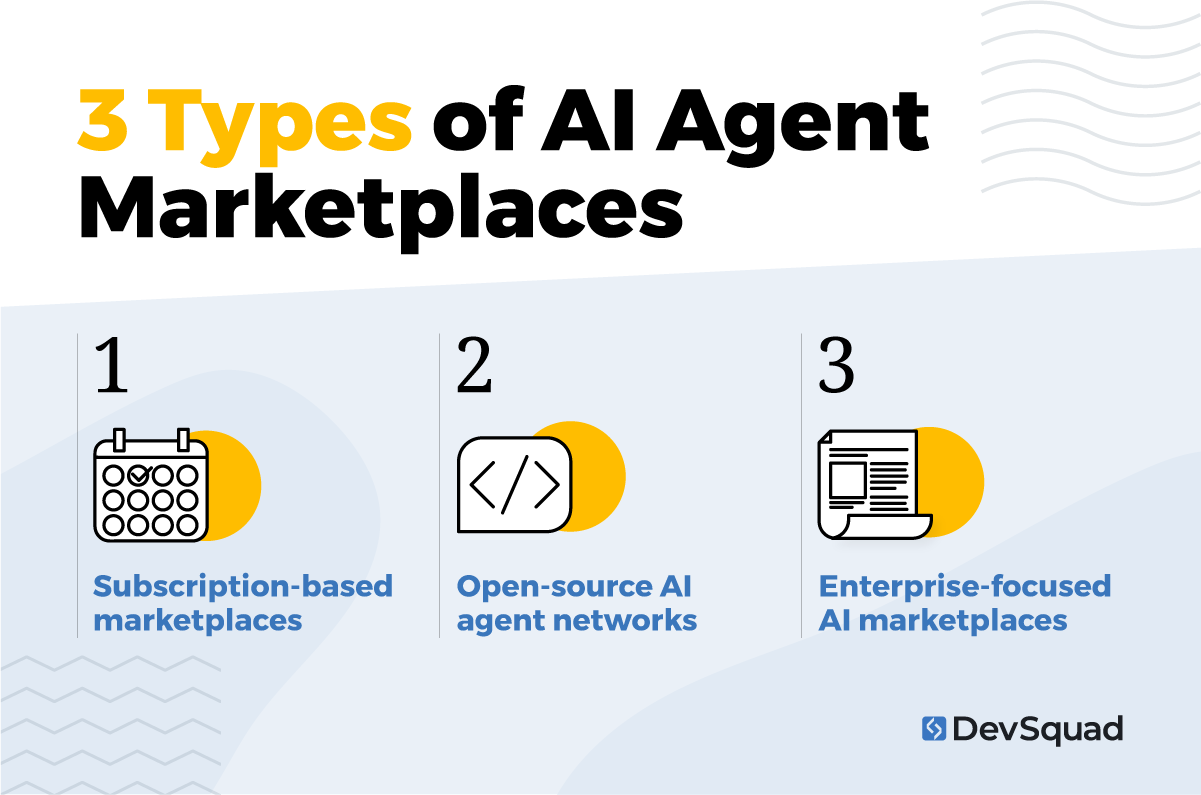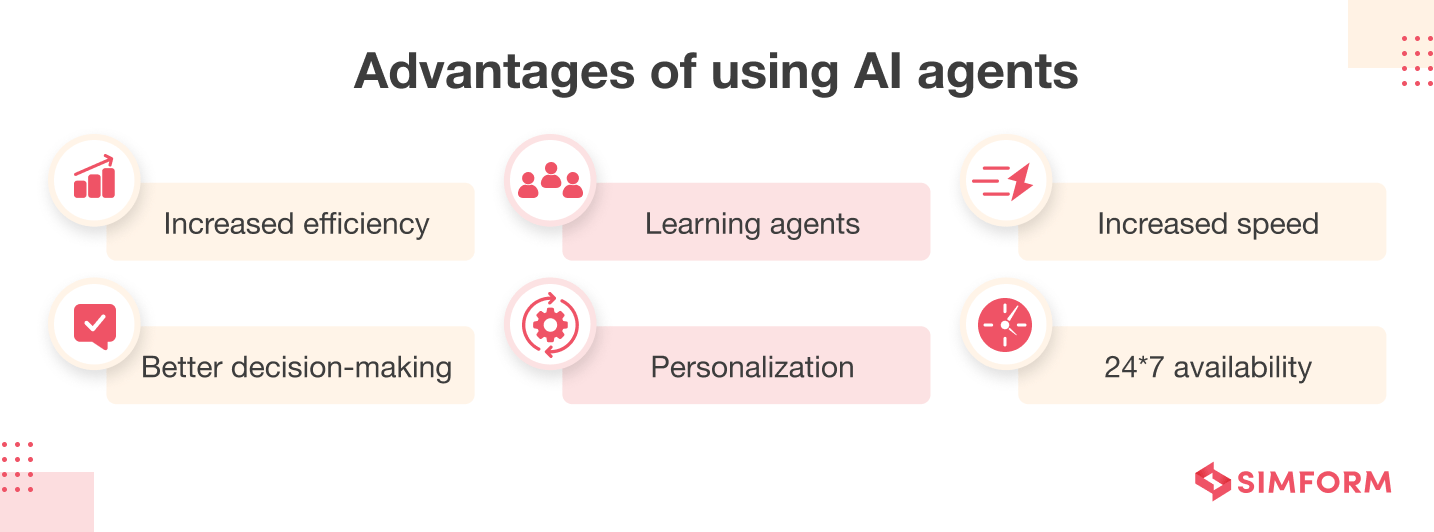How Startups Can Benefit from the AI Agents Marketplace for Competitive Advantage
The Comprehensive Guide to Recognizing the Uses of the AI Agents Marketplace
The AI agents marketplace represents a substantial change in how companies can boost their operations. By providing a variety of AI solutions, this marketplace addresses various business requirements, from automating jobs to boosting decision-making. Nonetheless, the assimilation of these agents is not without its obstacles. Understanding the ins and outs of this marketplace is essential for services intending to stay affordable. What elements should companies consider before adopting AI agents?
What Are AI Agents and Their Trick Attributes?
AI agents are advanced software application developed to do tasks autonomously or semi-autonomously, leveraging expert system modern technologies. These agents utilize formulas and data to engage with their atmosphere, making decisions based upon predefined criteria or found out experiences. Secret attributes of AI agents include their ability to procedure large amounts of data swiftly, helping with real-time decision-making. They frequently include machine knowing capabilities, enabling them to adapt to new details and enhance their performance gradually.
In addition, AI agents can operate in various domain names, from customer care chatbots to intricate information analysis devices. Their scalability permits them to handle several jobs at the same time, enhancing performance. Additionally, many AI agents have natural language processing abilities, which improve human-agent communication. Generally, the flexibility and knowledge of AI agents make them useful assets across sectors, driving technology and improving operational performance.
Checking Out the Different Kinds of AI Agents
The landscape of AI agents includes different classifications that highlight their distinctive functionalities. Each sort of AI agent offers special usage cases and applications, varying from customer support automation to complex data analysis. Comprehending these classifications is important for leveraging the complete potential of AI agents in diverse industries.
Category of AI Agents
While innovation advancements, the category of AI agents has actually come to be progressively vital to recognize their varied functionalities and applications. AI agents can be categorized into several types based on particular requirements. Reactive agents, for circumstances, run exclusively based on the present circumstance, lacking any memory of past experiences. In contrast, deliberative agents utilize inner models to plan and choose informed by previous interactions. One more classification focuses about freedom degrees, distinguishing in between semi-autonomous and fully independent agents. In addition, agents can be classified according to their function, such as individual assistants, client service robots, or data analysis devices. This structured category helps customers and programmers recognize the right AI agents for their needs and promotes efficient implementation in numerous settings.
Usage Instances and Applications
Comprehending the numerous classifications of AI agents leads the means for discovering their useful applications and utilize situations across various sectors. In healthcare, AI agents aid in medical diagnosis and person monitoring, optimizing therapy plans and improving person end results. In finance, they streamline operations via automated trading, scams discovery, and individualized client service. Retail services utilize AI agents for stock monitoring, sales projecting, and enhancing consumer experiences through chatbots. In manufacturing, AI agents enhance supply chains, screen devices, and enhance production effectiveness (AI Agents Marketplace). In education and learning, they facilitate tailored discovering experiences, adjusting to specific pupil needs. These varied applications highlight the transformative capacity of AI agents, highlighting their importance in driving innovation and effectiveness throughout numerous industries
Applications of AI Agents in Different Industries

Advantages of Integrating AI Agents Into Company Workflow
Incorporating AI agents right into service procedures can greatly improve performance and productivity, particularly when organizations welcome their capabilities to automate regular jobs and maximize process - AI Agents Marketplace. By leveraging AI, companies can considerably lower hands-on labor, allowing employees to concentrate on calculated campaigns that drive growth

Furthermore, AI agents help with boosted interaction and partnership amongst teams, improving processes and making certain that details moves flawlessly throughout divisions. The scalability of use this link AI remedies permits services to adapt rapidly to altering needs, making them extra durable in an uncertain market. Eventually, the integration of AI agents promotes development and improves general organizational performance, positioning companies for long-term success.
Challenges and Factors To Consider in Implementing AI Agents
While the advantages of AI agents in improving business procedures are clear, numerous obstacles and factors to consider have to be addressed throughout execution. Organizations often encounter technical hurdles, including combination with existing systems and information compatibility. The quality of data utilized to train these agents plays a necessary role in their efficiency; bad data can lead to suboptimal performance.
In addition, businesses should navigate ethical factors to consider, such as possible biases in AI decision-making and the implications of task variation. Regulatory compliance is an additional significant element, as companies should comply with information security and personal privacy regulations.
Lastly, the need for ongoing upkeep and updates can strain sources, needing a proficient workforce to handle and optimize AI agents effectively. Addressing these challenges is important for successful AI agent execution, guaranteeing that the innovation serves its designated objective without unpredicted issues.
The Future of AI Agents and Arising Patterns
The future of AI agents guarantees a transformative influence on numerous markets, driven by rapid advancements in modern technology and advancing user requirements. As machine learning algorithms become more innovative, AI agents are expected to show enhanced capabilities, consisting of boosted natural language handling and psychological knowledge. This development will assist in much more instinctive communications in between customers and AI Visit Website systems, cultivating higher trust and dependence on these devices.
Emerging fads show a shift towards hyper-personalization, where AI agents will analyze individual choices to deliver customized experiences. Furthermore, the assimilation of AI agents with Net of Things (IoT) devices will certainly develop seamless communities that optimize daily jobs and decision-making processes.
Furthermore, ethical considerations bordering AI use will obtain importance, motivating developers to prioritize transparency and responsibility. As these fads unravel, the AI agents marketplace will likely expand, providing varied applications throughout sectors such as medical care, financing, and education and learning, inevitably improving just how organizations run and engage with customers.
Frequently Asked Questions
Just How Can I Pick the Right AI Representative for My Needs?
Selecting the best AI representative calls for examining particular demands, evaluating features, and considering compatibility with existing systems. Investigating individual testimonials and testing alternatives can also assist in making an informed decision that lines up with objectives.
Exist Any Legal Implications When Using AI Agents?
Using AI agents brings potential lawful effects, consisting of concerns of responsibility, copyright, and data personal privacy. Users must recognize policies and compliance demands to reduce risks related to releasing these technologies successfully.
What Is the Expense Array for AI Agents in the Marketplace?
The cost array for AI agents in the marketplace varies considerably, normally spanning from a few hundred to a number of thousand bucks, relying on variables such as intricacy, capability, and the particular requirements of the user.
Just how Do I Evaluate the Efficiency of an AI Agent?
To assess the performance of an AI representative, one should take into consideration accuracy, effectiveness, adaptability, and user satisfaction. Assessing these aspects with metrics and individual responses gives an extensive understanding of the representative's performance.
Can I Tailor AI Agents for Details Tasks or Industries?
Customizing AI agents for particular jobs or markets is viable, permitting individuals to customize functionalities and feedbacks. This flexibility improves efficiency, making certain that the AI lines up with unique operational requirements and sector-specific needs.